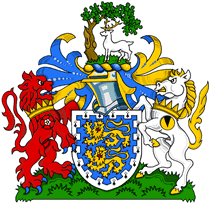Roused; incensed.
Up in arms
What's the meaning of the phrase 'Up in arms'?
What's the origin of the phrase 'Up in arms'?
The original usage of ‘up in arms’ was entirely literal. To be ‘in arms’ or ‘at arms’ was to be equipped with weapons and armour. The first known use of ‘up in arms’ in print is in Arthur Golding’s translation of Lyfe of Shatilion, 1576:
The Protestantes that were up in armes in other places.
Note: purists might prefer the use of the full title of the above, which is The Lyfe of the most godly valeant and noble capteine & maintener of the trew Christian Religion in Fraunce, Jasper Colignie Shatilion sometyme greate Admirall of Fraunce.
It isn’t clear why ‘arms’ was chosen as the name for weaponry. It may be as simple as a sword or club being seen as an extension of the arm. ‘Armour’ is just a form of defensive weaponry that a soldier was clad in. Like ‘vesture’, meaning ‘that which a person is dressed in’, that is, clothes, the ‘ure’ part may be translated as something like ‘collection of’. The spelling would be more properly ‘armure’, which is how it was spelled in early texts; for example: Robert of Gloucester’s Metrical Chronicle, 1297:
He & hys armure…
The style and decoration of armour was how knights were distinguished from one another in battle. This was important, as knights were more often captured and later ransomed rather than killed. Heraldic arms were the formalised development of that identity. A family’s ‘Coat of Arms’ was originally a actual decorated coat, worn by a knight when in battle. In the romantic poem Sir Gawain and the Green Knight, circa 1340, Gawain is described as being dressed “With ryche cote armure”.
There are many phrases in English that refer to ‘arms’ – ‘man at arms’, ‘firearms’, ‘to arms!’, bear arms’, and ‘up in arms’ adds to that list. It is merely the more active form of ‘in arms’, in that it indicates that a soldier wasn’t just equipped for a fight, he was on his feet and ready for it.
The history of “Up in arms” in printed materials
Trend of up in arms in printed material over time
Related phrases and meanings
Browse more Phrases
About the Author

Phrases & Meanings
A-Z
A B C D E F G H I J K L M N O P Q R S T UV W XYZ
Categories
American Animals Australian Bible Body Colour Conflict Death Devil Dogs Emotions Euphemism Family Fashion Food French Horses ‘Jack’ Luck Money Military Music Names Nature Nautical Numbers Politics Religion Shakespeare Stupidity Entertainment Weather Women Work
How did we do?
Have you spotted something that needs updated on this page? We review all feedback we receive to ensure that we provide the most accurate and up to date information on phrases.
